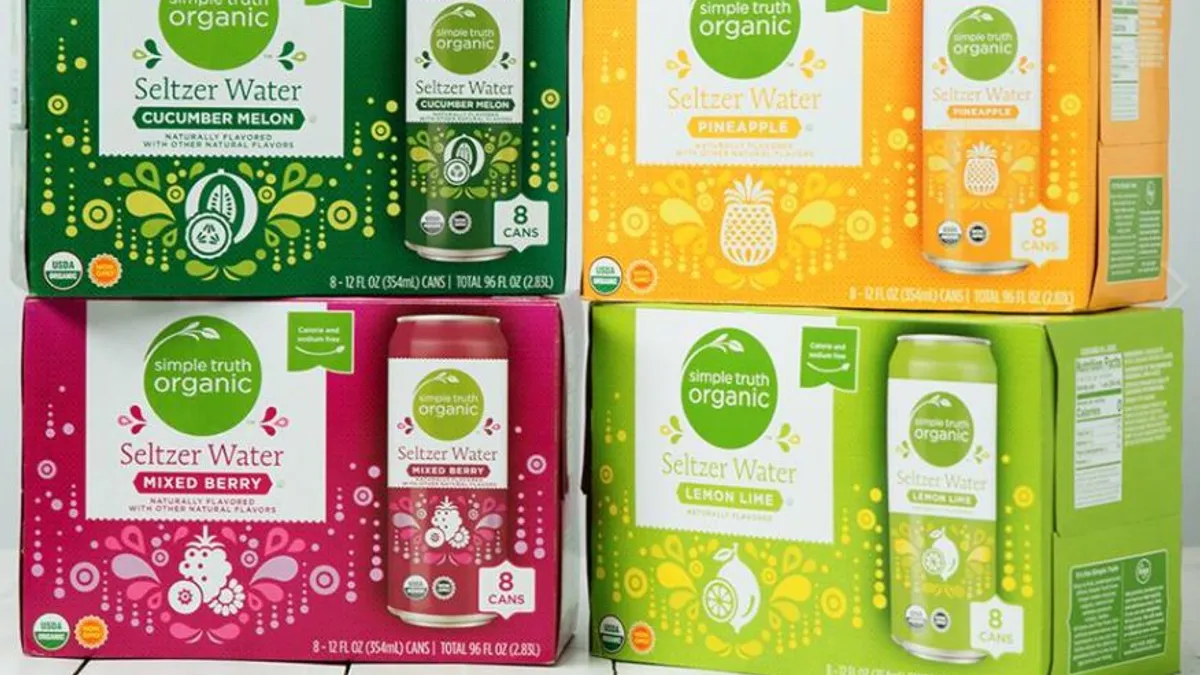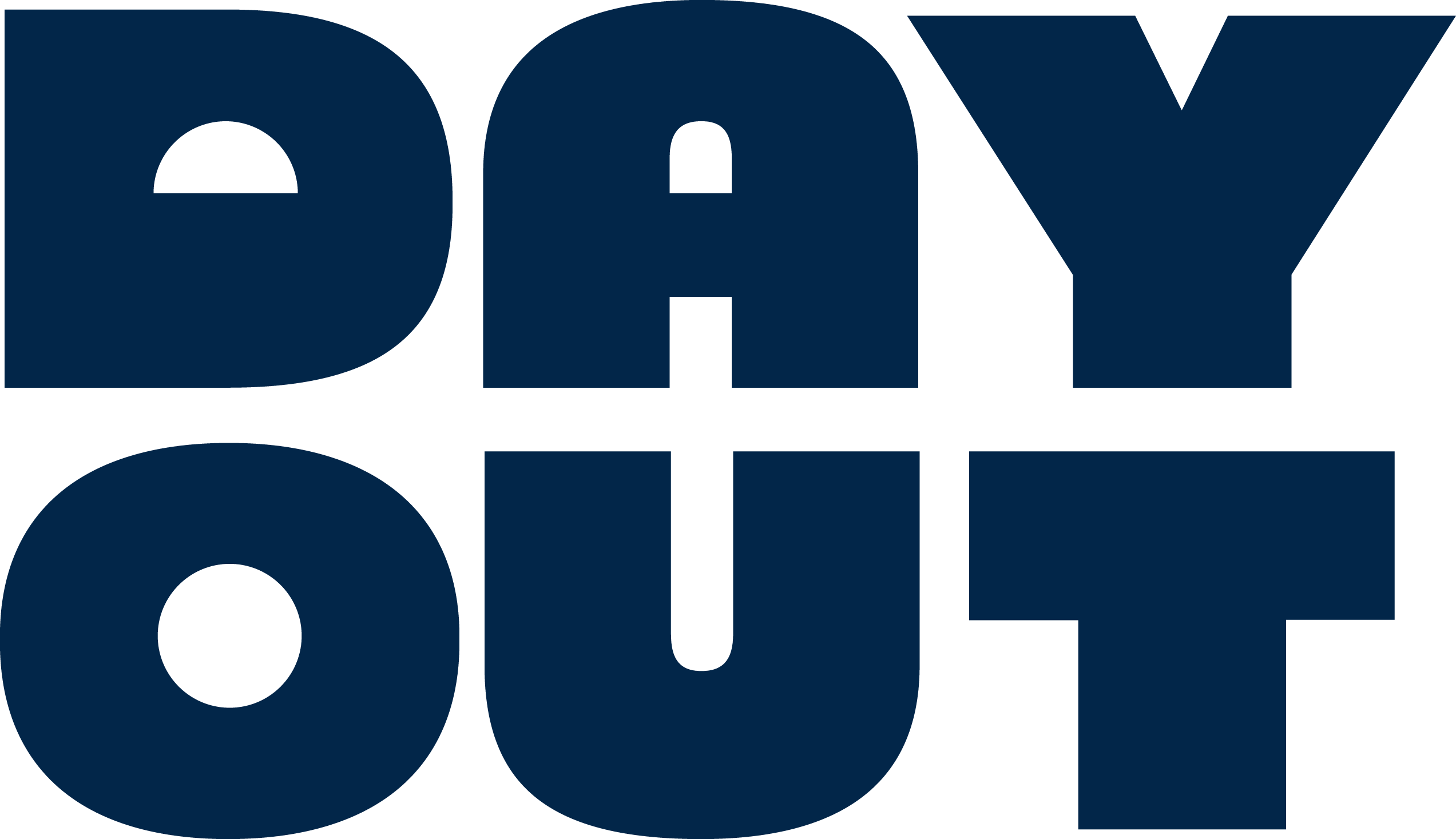For Kroger, staying ahead of fast-moving competitors like Walmart and Amazon comes down to operating efficiently, effectively leveraging its data science, expanding into promising new categories and building out its e-commerce platform.
It also comes down to bags of General Tso’s potato chips.
The uniquely flavored chips were just the latest new offering to cross Gil Phipps’ desk recently. As the head of Kroger’s “Our Brands” division, he’s charged with managing, developing — and yes, tasting — the retailer’s store brands, which cover several different lines and thousands of products, from Private Selection olive oil to Simple Truth organic baby food pouches.
“It’s a miracle I left one bag unopened,” Phipps told Food Dive in a recent interview.
Despite all the fun Phipps says he has, there’s a lot riding on his job. In a fiercely competitive industry, Kroger is under pressure to stand out from other players and give shoppers a compelling reason to visit its stores. Its private label offerings are arguably the most important tool in accomplishing this.
And while Kroger has a sizable advantage here, with private label items accounting for more than one out of every four store purchases, the retailer has a lot of work to do if it hopes to stay ahead of competitors that are dropping prices, moving online and rapidly growing their own store lines.
Aji amarillo, peri-peri and other advantages
It’s no secret that over the past several years, grocers have stepped up their private label lines to compete with national brands. Realizing that brand loyalty is low and getting lower, and that they can make higher margins while charging shoppers less, grocers have poured money into private label development.
The results speak for themselves: Store brands now make up 17% of all grocery sales, according to the Private Label Manufacturers Association, and could grow market share by as much as 10% over the next decade. A recent survey from retail services company Daymon found that 81% of shoppers buy private brands on every, or almost every, shopping trip, and 85% say they trust private brands as much as national ones.
In an industry full of top performers, though, Kroger stands out. The nation’s largest grocer brings in more than $20 billion annually through its store brands. During the company's most recent earnings call, CEO Rodney McMullen noted that its own brand products now account for 29.5% of unit sales and 26% of sales dollars.
"We’re going to shout about it so that customers who have yet to experience Our Brands no longer miss out," he said, noting that Kroger will be particularly focused on its Kroger, Private Selection and Simple Truth brands in the coming year.
Key to this growth, Phipps said, is Kroger’s focus on not just creating traditional brand equivalents, but also products consumers haven’t encountered before. He pointed to hot sauce as an example: Although there’s been lots of buzz around Sriracha, Kroger also offers peri peri sauce, made using African chilis, as well as an aji amarillo sauce made with Peruvian peppers, under its Private Selection brand.
“If it’s our version of a product we already have, our goal is to have a knockout version so that side-by-side, customers would prefer it to the other product,” said Phipps. “But a lot of what we try to do is offer products our customers have never seen before, and really in a lot of cases no one has ever seen before.”
This focus on newness and flavor innovation has promoted intense loyalty among customers. According to research firm Field Agent, 83% of Kroger’s customers say they purchase private label products from stores. Buying the company’s store brands also promotes higher overall sales.
“The benefits of private label for them are abundantly clear,” Ben Bienvenue, a research analyst for investment firm Stephens, told Food Dive. “The basket size grows meaningfully as they add additional private label SKUS to it. It also gives them more dynamic pricing power, better price transparency.”
Kroger has significant operational advantages that have helped it grow and evolve its store brands while still keeping prices low. Kroger operates its own dairy and meat processing plants, bakeries and other facilities. All told, the grocer manufactures 40% of its store brands, Phipps said.
"A lot of what we try to do is offer products our customers have never seen before, and really in a lot of cases no one has ever seen before.”

Gil Phipps
vice president, Kroger's Our Brands
Data science is another big advantage for Kroger, which operates its own 84.51 analytics firm and collects a lot of data on its customers, helping it figure out which new items to develop and how to hone existing lines. The grocer is constantly polling shoppers and conducting taste tests to make sure its products are up to snuff.
“The company's best-in-class data analytics operation and third party blind taste tests can help give it an edge on tracking which products best resonates with consumers," UBS analysts Michael Lasser and Mark Carden wrote in a recent note to investors.
For proof of just how advanced Kroger’s private label efforts are, look no further than Simple Truth, its natural and organic brand. Launched in 2012, the line recently eclipsed $2 billion in annual sales — eye-popping growth for a store brand — and now encompasses more than 1,400 different products, from diapers to fresh meat and dairy products. Phipps said the brand has benefited from rising demand for natural and organic products, but also through the sort of deep investment that retailer's have traditionally shied away from with store brands. Kroger plans to further expand the line by focusing on promising growth trends in the segment.
“There’s an awful lot of opportunity to grow Simple Truth, both in the categories we’re already in and the ones we have yet to get in,” he said.
Private label becomes a battleground
Kroger’s private label strategy was born out of market opportunity and consumer demand — but also out of rising competition. Amazon’s industry-rattling Whole Foods buy last summer has raised fears that the e-commerce giant will poach dollars from Kroger through its store and online operations. Following the acquisition, Kroger’s stock price plummeted 30% and has struggled to recover ever since.
Kroger is also facing off against Walmart, which seeks to bring higher-income shoppers into its stores, against discounters Aldi and Lidl and a host of other food sellers, both online and brick-and-mortar. To foster growth amidst tightening price competition, Kroger launched plan focused on its core strengths in scale, data and technology, called “Restock” that has produced better returns for the company.
“Kroger has been a net market share taker for a long time,” said Bienvenue. “They have been and still are a really strong operator, but there are just an abundance of competitive threats.”
Meanwhile, private label has become a battleground for all of these companies. Walmart and its Jet.com e-commerce arm have developed new grocery lines, while traditional competitors like Albertsons and Ahold Delhaize have fortified their store lines. Albertsons’ O Organics — a pioneering organic store brand — recently hit $1 billion in annual sales, and the company says it will grow the brand by 50% this year.
Last year, Amazon sold $10 million worth of Whole Foods’ 365 Everyday products on its website. It also offers a limited selection of its own grocery private brands, and plans to quickly expand into new lines. A report from Yahoo Finance stated the e-tailer could place its private brands in Whole Foods stores as soon as this month.
Discounters Aldi and Lidl, which stock upwards of 90% private label products, also continue to hone their offerings. As if to lay bare the tension here, Kroger sued Lidl last summer, claiming the German company’s Preferred Selection line too closely resembled its Private Selection brand. Kroger withdrew the suit in September.
“This is where retailers will differentiate themselves going forward."

Gil Phipps
vice president, Kroger's Our Brands
Legal battles aside, Phipps said he closely follows competitors’ efforts but tries not to worry too much about the threat they pose to Kroger’s business.
“This is where retailers will differentiate themselves going forward, so I think it’s really important to know what our competition is doing.” Phipps said.
To stay ahead, Kroger is laser focused on innovation. It recently built a Culinary Innovation Center close to its headquarters in Cincinnati. There, chefs and other members of the company’s culinary team cook up new private labels and fresh meals. It’s also a laboratory where the company can try out new offerings with consumers.
“It’s a great way to get feedback, a place for our culinarians and chefs to work and kind of bounce ideas off each other,” said Phipps. “We had a good place to work, but this takes it to a whole different level.”
In stores, Kroger is putting more promotional weight behind Our Brand products. On a recent visit to some Ralph’s and Fred Meyer banner stores in Los Angeles and Portland, Oregon, Oppenheimer senior analyst Rupesh Parikh noted that Kroger has continued to “double down” on its store brand offerings.
“We continue to see more and more emphasis on private label offerings throughout the entire store from personal care/HPC items such as diapers and soaps to seltzer water and what appear to be expanded offerings in the meat case,” he wrote in a note to investors. “In many cases, private label was placed on valuable end cap space.”
Phipps wouldn’t comment on Kroger’s merchandising efforts other than to say the retailer wants to make its store brands as visible as possible for customers. He also said his team wants to continue pushing into new categories with an eye towards quality and uniqueness.
Kroger will go to the ends of the earth to do so — literally, Phipps said. The company has a dedicated team that scours the globe for new flavors, and recently they were charged with finding a fresh source for a new smoked salmon line under its HemisFares brand. Staffers visited Scotland and other countries, but eventually settled on a fishery in New Zealand. There, said Phipps, the salmon ran in clean water and grew to be highly flavorful and nutritious. The new line will appear in stores this year.
“Being able to bring that to our customers in a highly curated fashion is really what we’re all about,” Phipps said.











